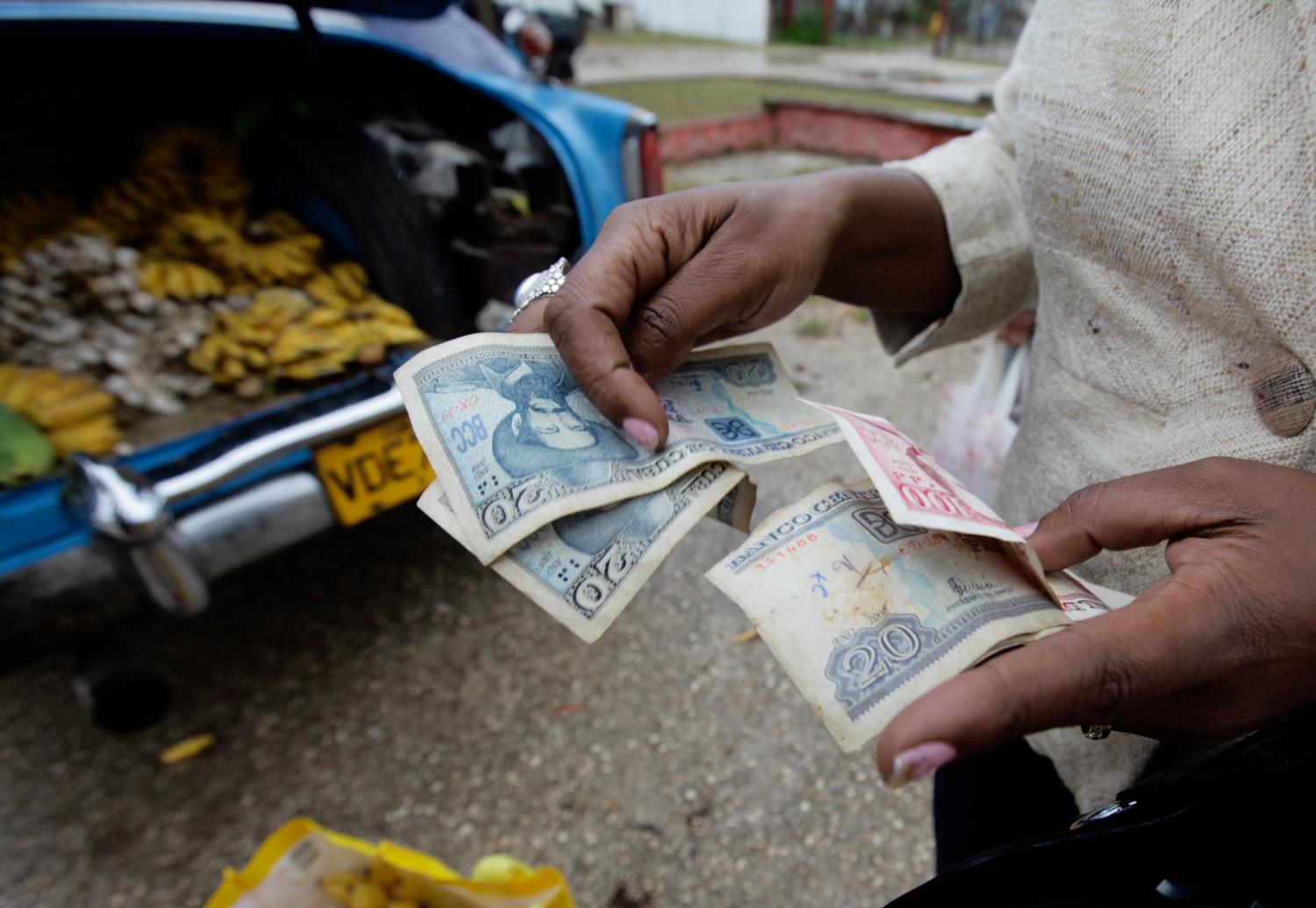Ted Piccone urges President Obama to double down on his 2009 decision to relax sanctions on the flow of people, remittances and exchanges from the United States to Cuba, recommending unilateral steps to expand trade, travel and communications with the Cuban people and to provide direct support to Cuban entrepreneurs.
 |
MEMORANDUM TO: President Obama |
Summary and Recommendations
Your decision in 2009 to free up the flow of people, remittances and exchanges from the United States to Cuba was the right call at the right time. These steps have coincided with, and facilitated, Cuba’s own process of reform, which continues, in fits and starts, to create new opportunities for the Cuban people to live independently of the state. Bilateral cooperation on migration, counter-narcotics, the environment, Colombia’s peace talks and aviation security has improved. More importantly, potential flashpoints on issues such as the Snowden affair and arms trade with North Korea have been contained.
Now is the time to double down on this policy and open additional pathways to engagement. Your call in Miami last November to be more “creative” and “thoughtful” as we update our
approach to Havana sent an important signal to key audiences here and in Cuba. Your handshake with Raúl Castro at Nelson Mandela’s memorial also made headlines worldwide and was well-received by many editorial boards across the country. These lay the groundwork for new initiatives in the next few months.
To build on this positive momentum, I recommend a package of unilateral steps to be announced under your executive authority to expand trade, travel and communications with the Cuban people. These would include: direct assistance to Cuba’s burgeoning small and medium enterprises, expanded general licenses for travel, additions to the list of authorized exports, lifting the cap on cash and gifts that non-Cuban-Americans can send to the island, and removal of Cuba from the list of state sponsors of terrorism. At the same time, we would continue to honor the sacrifice of Cuba’s human rights defenders and bring new attention to the private-sector entrepreneurs who are taking risks to open businesses.
These measures would draw support from key political and business constituencies in the United States (including Florida), help accelerate further change on the island, and pave the way for improved U.S. relations in the region. They would leverage your presidential leadership as a further catalyst for a historic process of reconciliation now underway and long overdue.
Background
Since your decision to relax tough sanctions on Cuba in 2009, cash and gift transfers to Cuban families cumulatively have reached an estimated $8.5 billion; the number of American visitors to the island (mostly Cuban-Americans) has climbed to over 400,000 a year; and humanitarian exports such as food and medicines have averaged over $430 million a year. These resources are catalyzing a host of positive developments as the Cuban government, under the more pragmatic leadership of Raúl Castro, undertakes reforms to its economic and social model to reduce dependence on the Cuban state.
An emerging class of 450,000 entrepreneurs, with the help of cash and goods transfers from the Cuban diaspora that you helped unleash, is creating new jobs. Citizens can buy and sell their cars and homes—an increasingly attractive option for Cuban-Americans interested in returning to the island. Farmers are now permitted to sell their goods directly to state-owned enterprises, joint ventures and businesses such as hotels and restaurants. Government employees are allowed to moonlight in the private sector, supplementing their meager state salaries. A growing number of Cubans are taking advantage of new rules that make travel back and forth to the island easier, reinforcing old and new ties to the United States. As these sectors struggle to establish and grow their businesses, they are already forming their own interest groups, diversifying civil society and opening new windows of opportunity for the United States.
While the Cuban government needs to do much more to improve the general climate for foreign investment and market-based economic development, the seeds for growth have been planted and are beginning to bud. Now is the time to help the emerging class of entrepreneurs by removing unduly harsh restrictions on trade with U.S. citizens. To that end, you should permit any U.S. commercial or economic activity that would provide direct services, donations and goods to Cubans authorized to open private enterprises. These permitted categories include construction and remodeling, real estate, transportation, technology, artisanal goods, food and beverages, room rentals and personal and technical services. These entrepreneurs are the future of Cuba’s political economy and would benefit from the skills and expertise of our highly successful small business sector.
Coincident with this package of support to Cuban entrepreneurs, you should appoint a senior envoy to undertake direct talks with Cuba aimed at removing the country from the list of state sponsors of terrorism. Our official position in this regard already recognizes that they no longer are involved in such activities; keeping them on the list weakens our more important objective of focusing on states such as Iran. Furthermore, Havana is serving a useful role as host of the Colombian peace talks, and Secretary Kerry thanked them for facilitating the safe return last fall of a U.S. citizen held by the FARC. Cuba also recently assisted with the return of a U.S. fugitive long wanted here for prosecution for hijacking. Havana’s bungled attempt last summer to earn some hard currency from the North Koreans through an arms transfer has been appropriately investigated by the United Nations, and the case will soon be closed.
Such a move would ease onerous financial strictures associated with being on the list (penalties in the Cuba case that are way beyond proportion and directly interfere with our goals to open Cuba’s economy). Moreover, it would incentivize Cuba’s cooperation to resolve the case of USAID contractor Alan Gross expeditiously. Other sweeteners we could bring to the table include authorizing payments for exports to Cuba through financing issued by U.S. banks and lifting the six-month wait that any vessel that enters Cuban ports must endure before docking at a U.S port. This latter step is of increasing value to our own trade interests as we get closer to the opening of the enlarged Panama Canal in 2015. We can also continue to take unilateral steps to improve humanitarian treatment of the four Cubans still serving time in U.S. prisons on spying charges in 1998. Your special envoy would also be charged with ensuring that both the spirit and the letter of these and previous presidential orders are appropriately respected throughout the government. These relatively modest measures would go a long way toward restoring our credibility in the region as we approach next year’s Summit of the Americas, which may otherwise ride off the rails.
Conclusion
To move forward, we need to overcome two stumbling blocks that have held us back: the detention of Alan Gross and the hardline views of a small faction of Congress. At least two important developments are coming together to give us confidence that we can tackle these issues successfully. First, the anti-Cuba lobby is increasingly out of sync, not only with their Cuban-American constituents but also with a growing number of Cuban dissidents and religious leaders who want the embargo lifted. Second, the Cubans are under pressure from their increasingly unstable benefactor Venezuela and may be more receptive than before to artful diplomacy that allows both sides to navigate these shoals.
Nonetheless, we will need to be prepared for some unhelpful noise from a small but committed pro-embargo group of Republicans and Democrats. This can best be handled through personal outreach by your senior envoy and by early signs from Havana that they are ready to deal. If successful, we can trigger a new dynamic in the long and troubled history of U.S.-Cuban affairs, avert negative consequences for us of a potentially hard landing for the Cuban people, and further our goals of a free and prosperous Latin American and Caribbean neighborhood.
Read last year’s corresponding Big Bets and Black Swans memo, “Opening to Havana” by Ted Piccone »



